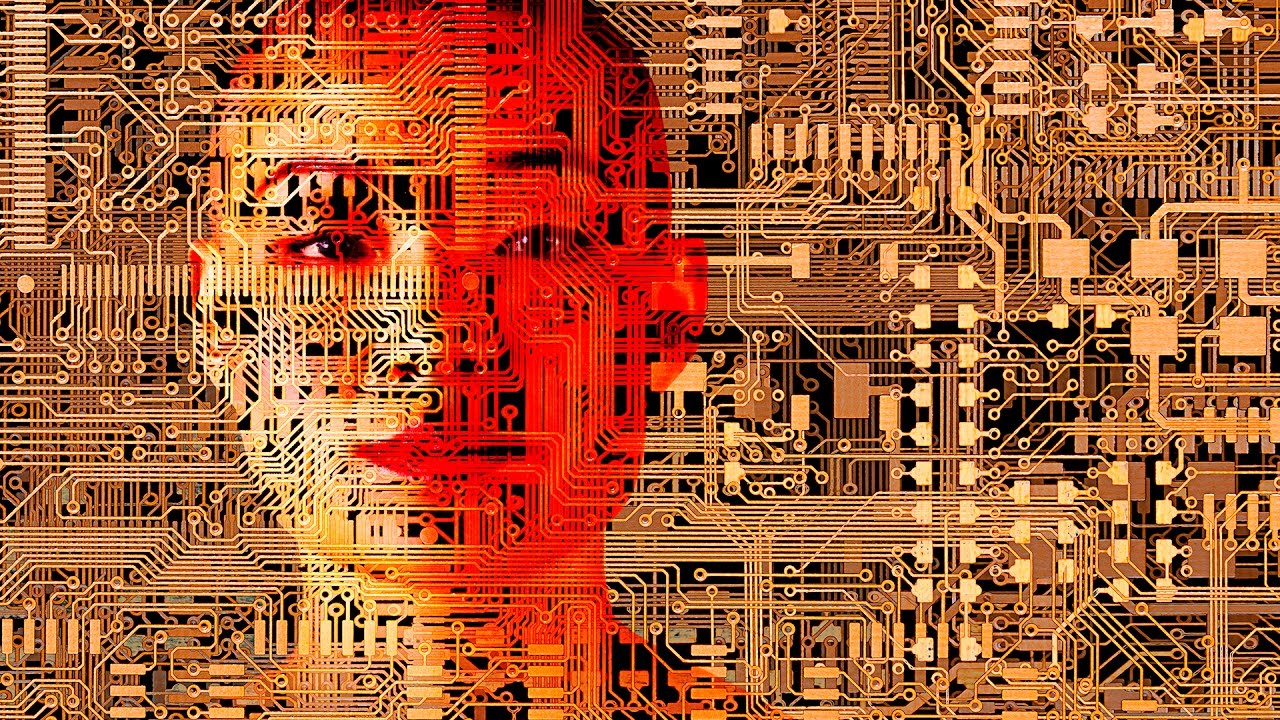Big Think
New videos DAILY: https://bigth.ink
Join Big Think Edge for exclusive video lessons from top thinkers and doers: https://bigth.ink/Edge
———————————————————————————-
Edward Boyden is a Hertz Foundation Fellow and recipient of the prestigious Hertz Foundation Grant for graduate study in the applications of the physical, biological and engineering sciences. A professor of Biological Engineering and Brain and Cognitive Sciences at MIT, Edward Boyden explains how humanity is only at its infancy in merging with machines. His work is leading him towards the development of a “brain co-processor”, a device that interacts intimately with the brain to upload and download information to and from it, augmenting human capabilities in memory storage, decision making, and cognition. The first step, however, is understanding the brain on a much deeper level. With the support of the Fannie and John Hertz Foundation, Ed Boyden pursued a PhD in neurosciences from Stanford University.
———————————————————————————-
EDWARD BOYDEN
Edward Boyden is a professor of Biological Engineering and Brain and Cognitive Sciences at the MIT Media Lab and the McGovern Institute for Brain Research at MIT. He leads the Media Lab’s Synthetic Neurobiology group, which develops tools for analyzing and repairing complex biological systems, such as the brain, and applies them systematically both to reveal ground truth principles of biological function and to repair these systems.
These technologies, often created in interdisciplinary collaborations, include expansion microscopy (which enables complex biological systems to be imaged with nanoscale precision) optogenetic tools (which enable the activation and silencing of neural activity with light,) and optical, nanofabricated, and robotic interfaces (which enable recording and control of neural dynamics).
Boyden has launched an award-winning series of classes at MIT, which teach principles of neuroengineering, starting with the basic principles of how to control and observe neural functions, and culminating with strategies for launching companies in the nascent neurotechnology space. He also co-directs the MIT Center for Neurobiological Engineering, which aims to develop new tools to accelerate neuroscience progress.
Amongst other recognitions, Boyden has received the Breakthrough Prize in Life Sciences (2016), the BBVA Foundation Frontiers of Knowledge Award (2015), the Society for Neuroscience Young Investigator Award (2015), the Carnegie Prize in Mind and Brain Sciences (2015), the Jacob Heskel Gabbay Award (2013), the Grete Lundbeck Brain Prize (2013), the NIH Director’s Pioneer Award (2013), the NIH Director’s Transformative Research Award (twice, 2012 and 2013), and the Perl/UNC Neuroscience Prize (2011). He was also named to the World Economic Forum Young Scientist list (2013), MIT Technology Review’s international “Top 35 Innovators under Age 35” list (2006), and his work was included in Nature Methods “Method of the Year” in 2010.
Boyden’s Media Lab group has hosted hundreds of visitors interested in learning how to use new biotechnologies. He also regularly teaches at summer courses and workshops in neuroscience, and delivers lectures to the broader public, including talks at TED (2011) and the World Economic Forum (2012, 2013, 2016).
He received his PhD in neurosciences from Stanford University as a Hertz Fellow, where he discovered that the molecular mechanisms used to store a memory are determined by the content to be learned. Before his doctorate, he received three degrees in electrical engineering, computer science, and physics from MIT. Boyden has contributed to more than 300 peer-reviewed papers, current or pending patents, and articles, and has given over 300 invited talks on the work of the Media Lab’s Synthetic Neurobiology group.
———————————————————————————-
TRANSCRIPT:
Edward Boyden: Humans and machines have been merging for thousands of years. Right now I’m wearing shoes, I have a microphone on my jacket, we all probably used our phones at least once today… And we communicate with the augmentation of all sorts of amplification and even translation technologies: You can speak into a machine, and it’ll translate the words you’re saying in nearly real time.
So I think what might be different in the years to come is a matter of degree, not a matter of kind. One concept that I think is emerging is what I like to call the brain coprocessor, a device that intimately interacts with the brain. It can upload information to the brain and download information from it. Imagine that you could hav…
For the full transcript, check out https://bigthink.com/videos/ed-boyden-hybrid-intelligence-coupling-ai-and-the-human-brain
Source




Computers are at single cell stage, in human years.
My angst with "A.I." right now is you have conniving youngsters giving each other self hope, that their chat-bot app is going to do anything positive in the world but create the next telecommunication tool. "Please hold while we are handling mass volume of calls right now".
Have inquisitive questions been aimed at machines like "wattson". Maybe some day A.I. Will be a confirmation portion of legislation, utilizing logic, in real time, not like those hypocritical tallywacking valuing repubs.
This is what Ray Kurzweil has been talking about for decades and what Elon Musk's AI company is ultimately about with its "Neural Lace" ambitions.
couldn't they literally reprogram your brain though? Total recall
Couldn't listen to him speak, kept spitting on me.
Fuck A.I. Im not selling my soul to technology, I love being pure Homo Sapien, just like my ansectors a thousand years ago.
Quite the thin ice this guy is on. And he loves it…man. As long as we have shitty ethics and questionable morality around the world, this idea is highly risky for anyone doing this. Hackers can already destroy your life physically and technically, now he wants to give them a mental path of destruction.
Pessimistic critique aside, this is an idea that can be used for good and evil, like any other scientific theory. Its not something we should be looking at right now. Baby steps, especially since we need to establish capable A.I. first.
Hello Pathfinder
And then there's people saying we are basically complex automatons ourselves and free will and nby extension any creativity just an illusion.
I suppose that after a few generations of human/machine hybrids, we (and I use the term "we" loosely) will decide that we don't need our organic parts anymore, and we'll gradually phase out the human element until we're fully machines. The future of humanity will be human-descended machines. The real question is what the future beyond that will hold. If machines are the product of human intelligence, what's the product of humanlike machine super-intelligence? "Godlike" would be an understatement.
One danger to watch out for is hackers. If our decision-making is artificially augmented, and the system that augments it has access to information networks, then another online mind could, in theory, hack into other people's decision-making algorithms and control behaviors.
No thank you… My brain is already messed up as is.
I love Ed Boyden and his genius work on optogenetics. I have this feeling optogenetics, chemogenetics or magnetogenetics are the solution to be able to read and write on to circuits at 'the speed of thought.'
But we don't understand enough about brain circuitry or network access within the brain and even though he mentions a great leap in the next 5-10 years I highly doubt we will see this technology in humans within our lifetime. This is considering it takes about 10 years to even pump out a pharma drug and let alone we don't have the hardware or have even begun effective mice studies.
Brilliant, inspiring and a goal worth investing your whole life in to.
Thanks, Boyden.
Humans are biological robots in the opinion of engineers, this algorithm can be used to replace human intelligence. The question is what material can unite with human organs.
It would be great if at some point he would write a book for the general public going into more depth about these concepts. This guy is so friggin' smart it's scary – check out his credentials from his web page on the Synthetic Neurobiology website: a Ph.D. in neuroscience from Stanford plus he received three degrees in electrical engineering, computer science, and physics from MIT graduating at 19!
It would be Human A.I😁😂
Full View Because You Are my Sekai sakashi
So you're saying that i just needed to update my firmware and I'm good to go with exams… Cool
Sir I am an AI student. can I get your email address, I have similar thought regarding this topic,I got stuck at middle in implementation.
Hidden code within the uplink to the brain to control the mind.
The first thing I'm going to do when they can augment my brain with AI, is smoke DMT. I'm bringing everything from THAT dimension of reality, right smack dab back into THIS dimension. Then I'm sending all of the output to the 3D printer.
I don't think this is a good idea….
Basic Concept of AI & Brain :
https://youtu.be/BhENkw-v8Wg
I do so many drugs my brain would break that shit.